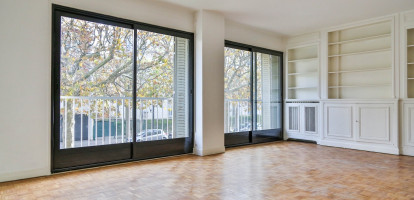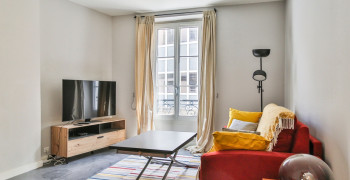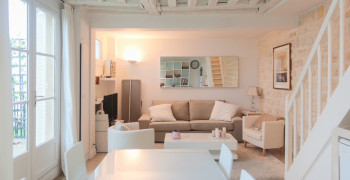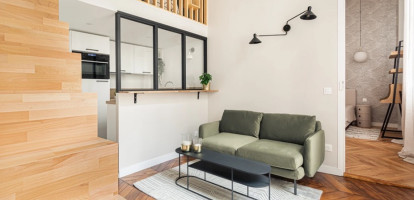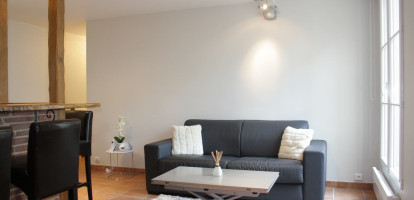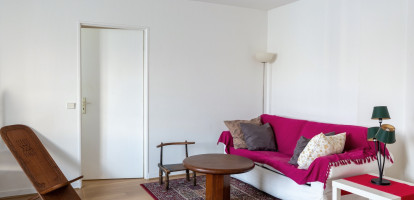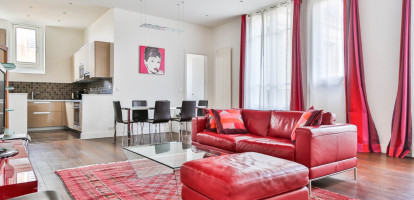When considering renting an apartment in France, particularly Paris, it’s essential to prepare your rental application meticulously. About 62% of residents in Paris live in rented accommodations; the demand for apartments can exceed 10 applications for each available unit. In today’s competitive rental market, having a standout application is key. It’s all about putting together the right documents that show you can pay the rent and follow the lease terms. In this article, we’ll walk you through what you need to include in your rental application and share some tips to boost your approval chances.
How to Prepare a Rental File in France?
What you need To Know (Sorting out your needs and grasping the basics)
Firstly, you will need to sort out where to stay when you get to France and besides staying in a hotel or searching for a house yourself, alternative options for finding accommodation include using the following services:
- Relocation Agencies (firms that facilitate the relocation of skilled employees and their families to France)
- Apartment Hunters (Professionals in locating ideal houses and apartments for individuals or families according to their needs)
- Real Estate Agents: House Owners who want to sell or rent their houses usually contact a Real Estate Agent who has clients. These agents sometimes put out ads to market these accommodations in specialized housing websites or in luxurious magazines .
- Specialized Websites: These websites have a list of available accommodations, their sizes, number of rooms, location and price updated regularly. Example of specialized websites for updated rental information include; Paris Rental, Explorimmo
The French government imposed a ruling that Landlords shouldn’t raise the rental prices above 20% of the stipulated median rent published by the INSEE (National Institute of Statistics and Economic Studies) quarterly in urban areas, the purpose for these caps is to stem inflation on rents in most of the major cities, especially Paris where rents are high despite these caps. Housing in the suburbs is still considerably cheaper to rent though. Something else to ponder is whether you’d be renting a furnished or unfurnished house? The government’s basic stipulations for furnished houses includes bedclothes, cooking stove or oven, refrigerator, dishware, kitchen utensils, tables and chairs, storage compartments or shelves, equipments needed for housework and lighting. XX Accordingly, it is advisable to make a full inventory of the available furnishings in the presence of the Landlord or the estate agent when moving into a furnished apartment. The rental period is one year minimum, but can be longer. Also, the tenancy contract for unfurnished properties offers the tenant a minimum of three years while the minimum for furnished properties is one year, however, these contracts are renewed automatically unless the Landlord or tenants decides otherwise. Take your decision before the contract expires, at least one month or sometimes three months before the end.
Your Landlord can legally request a tenant to get home insurance and may request proof of insurance yearly, however, the tenant can use any insurance company of their choice. The Landlord is responsible for major repairs and property maintenance but little fixes or repairs like plumbing, and electrical issues, mowing the lawns etc. are the responsibility of the tenant. Moreover, a few extra fees you could pay include real estate agent fees and security deposit (which you forfeit if you cause extensive damage to the property). If you decide to leave a furnished apartment, giving one-month notice is the standard regulation, while notice given can be any duration between 1-3 months for an unfurnished apartment; however in contrast, the rules stipulate that a French Landlord must have a good reason to cancel a rent contract and even they have to give 3 months notice for furnished apartments or 6 months for unfurnished apartments and. Your deposit will be refunded within a month of leaving if the Landlord is satisfied with your residency and if you don’t get your deposit within that time, complain to the Commission Department of Conciliation (CDC). The French Rules and Regulations concerning Rents are tailored for optimal tenant comfort and consequently, once the house keys have been transferred to a tenant, the Landlord can’t enter or check up or run maintenance on the property without the tenant’s permission unless there’s a permission clause in the rental contract (Scrutinize your rental contract before signing). Disagreements between Landlords and Tenants are legally settled by either the Commission Department of Conciliation, the National Organization for information on housing (for free legal advice) or any these two French only websites (https://www.anil.org or https://www.service-public.fr/).
Preparing Your Rental File
The Boys Scout motto “Be Prepared” would be best applied in France because having the proper documents would make your stay in France more comfortable as there is a ton of paperwork required renting an apartment. The rules and regulations defining the contents of a rental file is stipulated by the French Government and while they might seem bulky or unmanageable, the intention is to protect the Landlord’s property by ensuring that Tenants are dependable and to prevent disputes or irregularities between Tenants and Landlords. Besides, having the required documents (or photocopies) makes wading through French Bureaucracy easier and I’ll outline the necessary documentation for your rental file to enable you meet the rules and regulation for renting a French apartment and basically living in France easier. Translating most of these documents into French would help make things less stressful for you. These are a few documents you should carry with you to France:
-
Identification Documents
You would need your passport or national identity card for almost every procedure you decide to undertake in France. Presenting a Visa is largely required by Landlords for Non-EU citizens. Ensure you make a lot of photocopies of all your documents and copies of your passport photographs.
-
Recent Pay slips or Job Contract Showing Your Salary
Obviously, renting a flat is a business and like every business, the Landlord shouldn’t lose money. Having recent pay slips (your last 3 months), or an employment contract that shows your salary goes a long way towards reassuring your landlord that you wouldn’t default on payments. A Landlord is not legally permitted to ask for your statement of account but could request a recommendation from your bank showing you are a reliable client. For self-employed workers, you may also present a certificate of resources for the present year supplied by a registered accountant. The French Government may also assist students finally by subsidizing a portion of their rents and this aid is applicable to students of every nationality through the C’ aisse d’ Allocations Families (https://www.caf.fr).
-
A reliable Guarantor
Your guarantor needs to be someone the landlord can hold responsible if your payments are late coming. When applicable, your guarantor is required to provide his ID card, last 3 payment slips, tax notification and employment contract. The Guarantor’s major responsibility is to write a Letter of Commitment where he’d vouch for you that you are able to pay and that you are financially capable of covering the rent costs. Some Landlords or real Estate Agencies might refuse Guarantors from other countries and this can be a difficult situation to be in if you are new to France or a student. Your Bank may agree to act as an institutional Guarantor for a fee or you can use the following services via their websites; Garantme XX can be contracted to act as your guarantor during the entire duration of your rental in France; or Lokaviz (https://www.Lokaviz.fr) which specializes in assisting Students.
-
Proof Of Former Address
You could show up with any of the following; Last three receipts of rent (or Certificate from previous agent or Landlord to act as reference), Certificate of Election of Domicile, Last bill of tax "d'habitation"..
-
Proof Of Professional Activities
Contract of employment or an attestation by your employing that should clearly state your employment status, proposed wages and date of expected entry into service. These may also be useful; a recent piece proving your professional activity, student card or certificate for the present year. For self-employed workers, you may be required to present a copy of your INSEE identification certificate.
-
Documents Showing Your Right To Stay Abroad
Examples of these are temporary residence card, National card of a Member State of the European Economic Area or the European Union
Now that you are aware of the rules and regulations regarding keeping a rental file, you’d be better prepared for your stay in France and I hope you have a pleasurable stress free stay while you work or study. Remember, have as many copies and as many documents as so can, translate them into French and ensure you collect and keep a monthly receipt of payment and other rental costs. Glad to see you are here with me, I appreciate your time and effort reading through this article. Have a beautiful day!
Written by Philip Matric, specialist on Digital Marketing, Real Estate, Shipping, Medical and Logistics.



 Français
Français

